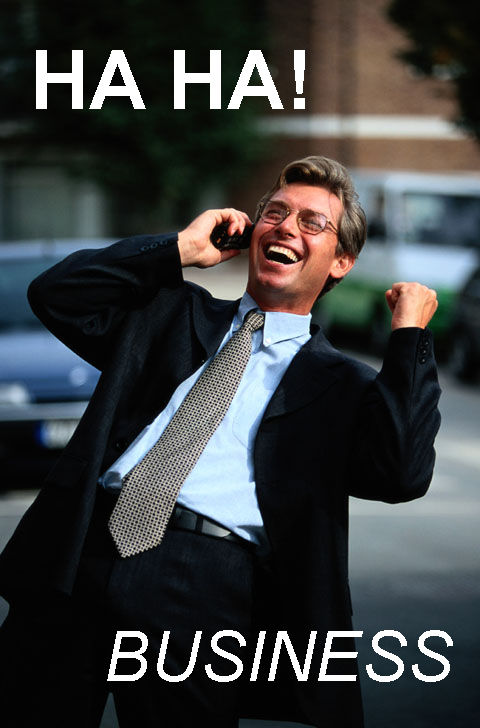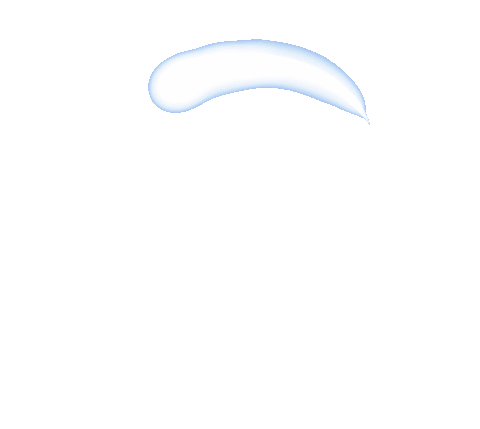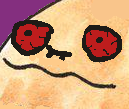I’m an atheist through and through, but the one thing I’m unsure about is consciousness.
We basically made zero progress in figuring out what it physically is, how to test for it or how it is created, despite every single one of us experiencing it first-hand every day of our lives. That might be a sign that our physical understanding of reality is just not equipped to deal with this question.
On the other hand, if it has physical consequences then it must measurably interact with the physical world, and maybe it emerges from the complex interactions in the brain somehow. I personally just cannot imagine how the thing I’m subjectively experiencing as myself could ever arise from “dead” atoms and molecules.
The main reason I think consciousness is just advanced firing of synapses in the brain is because drugs can impact it, surgeries can impact it, flaws in the system can impact it.
If it was anything more than physical, these things wouldn’t affect consciousness so easily.
Take those who have had their Corpus Callosum split. It’s widely viewed that patients with this procedure end up with two distinct consciousnesses communicating with each other (https://www.ncbi.nlm.nih.gov/pmc/articles/PMC7305066/) which suggests to me that consciousness must be nothing more than the effects of complex physical systems in our brains.
If it was anything more than physical, these things wouldn’t affect consciousness so easily.
We know that it changes perception and behavior, because those are the things we can measure. We have no idea if it affects consciousness, because we don’t even know what that is.
[…] which suggests to me that consciousness must be nothing more than the effects of complex physical systems in our brains.
The problem I have with these studies is that they all test the functions of the brain and its hemispheres, and then argue what the produced consciousness(es) could look like based on some preconceived notion of what a consciousness can an cannot do. But who says that one consciousness cannot make two different choices simultaneously for example? Ofc it’s the best we have right now and imo very interesting and important work, but it’s still nothing like actually “detecting” consciousness and analyzing its properties. The sad truth is that we still have no f*cking clue.
I know that this all sounds very ominous, but that’s kind of the point. Consciousness as I’d define it is not just the mechanical function of the brain, but the experience of being “present”.
Personally, I am an atheist, and I find nihilism, absurdism, and to a lesser extent, stoicism, to be the philosophies I most closely resonate with.
I pray to Joe Pesci, because he looks like a guy that can get things done!
I just saw a comedian yesterday saying the same haha. but I forgot the name
George Carlin, live at the Paramount 1992 a special for HBO if I remember correctly.
I have been described as the least spiritual person various people have ever met. I think that’s accurate. I just don’t have a spiritual side.
Some people have treated me less than excellently as a result, with the notable exception of Buddhists (I immigrated to a predominantly Buddhist country).
I don’t believe any of their stuff, I find a lot of it superficial and against the core principles they preach… and they don’t seem to mind at all. I don’t have to hide what I think – I’m also free to discuss these matters (politely). Even with the monks.
Anyway, I’m a practical person. When the floods come, we fill sandbags together. I’m OK to volunteer at their events, and so on. The support is mutual and practical in nature.
I’m an agnostic atheist, but recently I’ve been drawn to somewhat pagan beliefs about spirituality in nature. I can’t bring myself to believe in some mother Gaia goddess that controls the flow of nature, but something about nature holding innate power and energy rings true. I’m still figuring it out.
I had some traumatic events happen in my life recently, and in looking for ways to feel safe again I found myself believing in things I’ve never believed in before. I had some serious dysphoria about it lol, I was like “is this how ancient humans developed religions? A result of terror and seeking comfort?” As someone who became an atheist on my own as a young child, having any belief in something without actual evidence was making me question a lot about myself. But I don’t think I need to pigeon-hole myself into any self-made boxes, I can just let my beliefs be.
Thanks for sharing, I can relate to the desire for comfort and hope you can find it somewhere soon.
The catolicism is the unique, chruch(True).
with cientific evidence.
Faith and reason.
No one in this thread is here to be converted, do not push your religion on me.
No problem. I only say, what they asked.
Postdata: But I hope you can allow me a quote of Father Jorge Loring in her book “to save yourself”:
“Those who reject all morals (” prohibited to prohibit “), are some hypocrites, because they want to impose their rules. He said, Ortega and Gasset:” of the moral, it is not possible to be disengaged “69”.
I personally like the scientific approach to look for the truth, but also that same has prevented me many times to walk quietly. Although and I’m just surpassing.
I truly do not care what anyone else believes, so long as it doesn’t lead them to inhibit the fundamental human rights of others.
Personally, I take pride in trying to see things from multiple points of view. Logic and reason are, more often than not, the things that drive my actions… to a degree. Obviously I’m not perfect nor have I ever claimed to be, but I do my best to think clearly and deduce the best course of action. That isn’t to say that I don’t get complacent, but I see no point in trying to deny anyone anything if they aren’t hurting anyone else. Treat others as you’d like to be treated and all that.
I truly do not care what anyone else believes, so long as it doesn’t lead them to inhibit the fundamental human rights of others.
I agree. Anyone has the right to believe what ever they want.
The problem is that so many faiths have the belief their’s is the only correct one and they have the right (no, the duty…) to force their beliefs on others.
It is the perfect example of the paradox of tolerance.
It is the perfect example of the paradox of tolerance.
Yep. Once the nazis start drinking at your bar, it becomes a nazi bar whether you wanted it to or not. Tolerance of the intolerant only breeds further intolerance. You gotta cut it off somewhere.
I totally agree. But I increasingly notice that logic and reason, albeit great tools to navigate the world, don’t offer any answers to the “bigger” questions.
This!
Logic because it brings me closest to the reality I perceive and thus find my way easier.
That’s been my way as well so far. I’d be interested in how logic helps you cope with questions, such as where do we come from?, where do we go?, what is our purpose?. (Not playing devil’s advocate, real interest.)
I think those questions are great, but the answers will always lead to more questions. It is a journey in that regard which I suppose is logically driven. I think the best analogy is asking what is this table. It is made of wood and screws. What is wood made of…fibres. What are the fibre made of, carbon and other atoms. What was the atoms made of….etc. etc. Logic brings you closer to reality, but the closer you get, the more questions you will have which is one of the joys of life.
None. I find them all so false and superficial, claiming to have all the answers but refusing to actually share any of them with the flock, saying “you must find the answers for yourself, trust in [religious whatever].” I’m like okay, so you’re admitting that you are superfluous to the search for meaning. Got it. Bye.
I’ve never found a religion whose adherents weren’t willing to support me if I asked.
Mostly positive nihilism, with a hint of reincarnation beliefs
I’m Eastern Orthodox, I believe it to be the full and complete continuation of the Christian Church from its earliest days.
How do you come to this conclusion?
There are only two major churches which have a valid historical claim to be a direct succession of the original Church, the other one being the Roman Catholic Church. On the major points of contention - the filioque and papal supremacy - I found the history of the early Church to be solidly supporting of the Orthodox view.
I found the history of the early Church to be solidly supporting of the Orthodox view.
Not to be a dick, but that’s because they did their absolute best to kill heretics and dismantle their belief systems by destroying their literature.
The early church had a lot of ideas about Jesus and his purpose, but the gnostics and other groups were all suppressed by the Orthodox Church and we only know about their beliefs through the lens of their interlocutors.
History is written by the victors, if the Orthodox Church is responsible for early church history they’re going to give you their version of it.
Rome killed heretics, because Christianity was the state religion, and turned to the Church to speak to what is and is not Christianity. And the Church has condemned things like gnosticism as non-Christian from the very beginning. Don’t confuse Rome having an official prescribed acceptable set of religions with some nefarious scheme by the Church. It is the role of the bishops to speak to what the authentic Christian faith is; what the state - in this case, the Roman empire - does with that information, with regard to non-Christian faiths, is it’s own business. The Church is under no onus to accept false theology as Christian simply for fear that the Empire will persecute those people if they don’t. In fact, she would’ve been wrong to do so, and unfaithful to her commission by Christ had they compromised the Christian religion that way.
None. When I consider death/existence/morality I get quite frustrated that I don’t have an answer. Give me omniscience (while preserving my morality and sanity), damn it!
deleted by creator
I find comfort in the Zhuangzi, a text that later became associated with daoism.
To me, the zhuangzi is about accepting the inevitablity of change by remembering that the human scale is only a small part of the crazy and unknowable universe we exist in.
It’s hilarious, an obvious work of genius, and surprisingly modern. Unlike the dao de jing, it uses nonsense and satire to make very real and relevant points about the human plight.
Thanks! Can you recommend a book / translation?
https://scholarworks.iu.edu/dspace/handle/2022/23427
Here’s a combined translation/commentary from a scholar. It has some important context.
It’s only the ‘Inner’ chapters - this is the section that is generally accepted as written by Master Zhuang himself because it’s “governed by a single creative vision”. The ‘outer’ and ‘miscellanious’ sections still have some great chapters - ‘stealing’ is one of my favorites.
Also, here’s an 8m video of a semi-related daoist text called Neither Lord Nor Master. I find it so relevant. The first sentence is basically: Confucians say heaven ordained authority, but that’s a lie told by people who benefit from oppression. https://www.youtube.com/watch?v=Gs23tDAaEho
theravada









